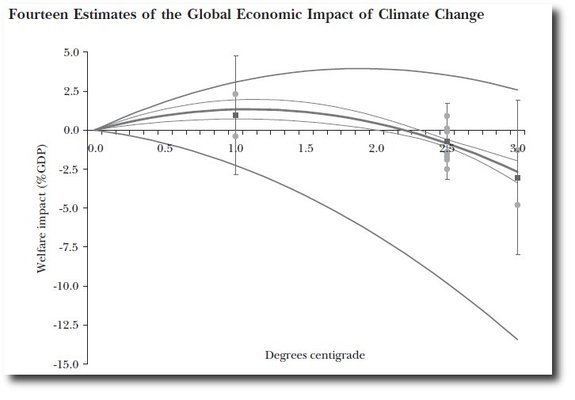 One of Matt Ridley's ancestors was burnt at the stake for refusing to toe the line on the religion of the day, and those in positions of power today seem to have the same distaste for dissent as the Marian persecutors of yesteryear.
One of Matt Ridley's ancestors was burnt at the stake for refusing to toe the line on the religion of the day, and those in positions of power today seem to have the same distaste for dissent as the Marian persecutors of yesteryear.
The ire of the metropolitan "liberal" elite has been prickled by Ridley's article in the Spectator, which describes the consensus among economists that the effects of small amounts of global warming will be beneficial.
Prof Richard Tol calculated that climate change would be beneficial up to 2.2˚C of warming from 2009 (when he wrote his paper). This means approximately 3˚C from pre-industrial levels, since about 0.8˚C of warming has happened in the last 150 years. The latest estimates of climate sensitivity suggest that such temperatures may not be reached till the end of the century — if at all. The Intergovernmental Panel on Climate Change, whose reports define the consensus, is sticking to older assumptions, however, which would mean net benefits till about 2080. Either way, it’s a long way off.
Amongst the usual furious discharges on Twitter, has come this response from someone called Duncan Geere, who has this to say at the New Statesman:
If you read the paper yourself, you'll quickly see that Tol's actual conclusion is that things start going downhill at about a +1C rise.
In fact, if you look at the graph concerned you will see that they are actually agreeing with each other. Here it is:
 Ridley is saying that things get no worse until we've had another 2.2°C of warming, Geere that the downward trend starts at 1°C. But by saying that "things start going downhill at 1°C", Geere gives his reader the impression that Ridley is wrong and that net benefit only applies to much lower temperature rises.
Ridley is saying that things get no worse until we've had another 2.2°C of warming, Geere that the downward trend starts at 1°C. But by saying that "things start going downhill at 1°C", Geere gives his reader the impression that Ridley is wrong and that net benefit only applies to much lower temperature rises.
Geere also says that "multiple analyses have shown that the long-term costs [of AW] are far in excess of the costs of preventing it", but intriguingly he doesn't actually cite any of them. I wonder where they are?